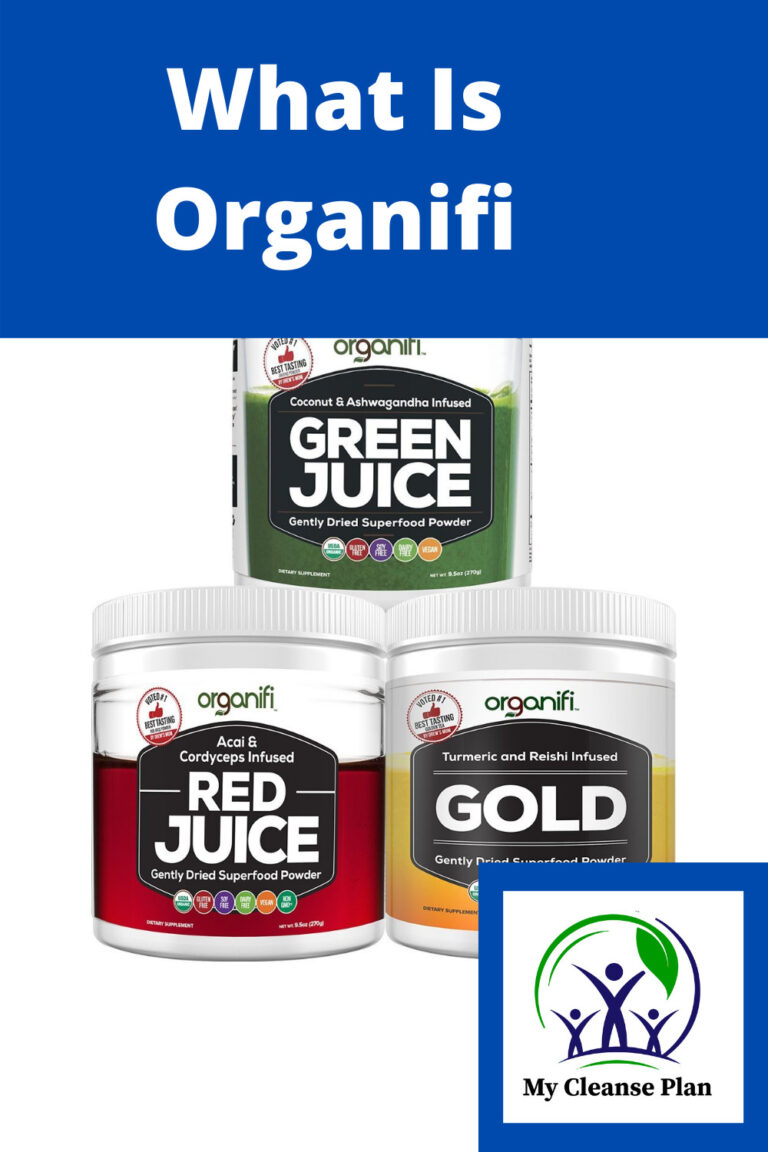Why Is It Important To Have A Healthy Gut
A lot of people have heard the term gut health at one point or another in their life, but many don’t know what it actually means. Moreso, they don’t understand how imperative a healthy gut truly is.
Well, gut health is much more than just a buzzword in the health industry. A healthy gut is critical to several functions within our bodies.
Keep reading to find out why a healthy gut is so important and how you can ensure you have proper gut health at all times.
Why Is It Important To Have A Healthy Gut
Research on gut health has become more prominent over the years. Studies have shown that gut health is far more important than once thought. In fact, a healthy gut affects your entire body, from brain health to the immune system, the heart, and more. Let’s take a closer look.
Important Role in Overall Weight
If you have ever heard of “good” bacteria and “bad” bacteria, they’re talking about the bacteria in your intestines. There are literally thousands of different types of bacteria. Good bacteria are critical for your health.
However, an overload of harmful bacteria can lead to significant health issues. One of these issues is weight gain. So, it is vital to make sure you’re consuming enough healthy bacteria if you’re trying to lose weight. This can be done in the form of probiotic-heavy foods and supplements.
Affects the Digestive System
Another reason why a healthy gut is essential is that it directly impacts your digestive system. An unhealthy gut can lead to discomfort, bloating, and, you guessed it – weight gain. More intensive illnesses include irritable bowel syndrome and disease.
A lack of proper gut health directly leads to bloating and pain associated with IBS. Again, the best way to combat this is by adding more healthy bacteria to the diet. Bifidobacteria and Lactobacilli are the best bacterias to consume.
https://gigasecurehome.com/best-outdoor-security-cameras-for-2025-reviewed
May Benefit Heart Health
You don’t have to be a doctor to know that a healthy heart is essential. But did you know that gut health has a significant role in heart health? A healthy gut will ensure sufficient cholesterol levels. It can also reduce the risk of heart disease, heart attacks, and stroke.
The best bacterias to consume for heart health include choline and L-carnitine. However, Lactobacilli is also highly recommended for reducing cholesterol levels.
Reduces the Risk of Diabetes
An imbalance of blood sugar for a significant time can lead to type 1 and type 2 diabetes. Well, a healthy gut will be able to control blood sugar levels more readily. In turn, proper gut health reduces the risk of developing any type of diabetes.
Affects the Brain
Most people don’t connect their stomachs to their brains. They are entirely different with their own functions. But what you might be shocked to believe is that gut health has a severe impact on your brain. This is true in more ways than one. Let’s take a closer look.
- Certain bacterias in the gut are responsible for producing chemicals in the brain. Good bacteria, for example, will encourage serotonin. In turn, there is a reduced risk of depression.
- The gut is directly connected to nerve endings found in the brain. Proper gut health will ensure that nerve connections are functioning correctly. This can lead to improved psychological disorders.
- A healthy gut can lead to improved mental health disorders. Since bacteria directly relates to chemicals and nerve endings, it’s entirely possible that gut health can improve specific mental health disorders. This includes but is not limited to depression.
Improves the Immune System
Last but not least, gut health has a relation to your immune system. Good bacteria work to build and boost your natural immune system. Therefore, you have higher protection against infections. You will also be better prepared to fight illnesses thanks to better cell communication.
Signs of an Unhealthy Gut
If your gut does not have enough good bacteria, it will tell you. A variety of symptoms ranging in severity will occur when there is a gut health issue. These signs and symptoms include:
Stomach Discomfort
Now, it’s not necessarily unheard of to have stomach discomfort at some point. Most individuals will struggle with bloating or constipation at some point in their lives. Well, while this is normal, if these symptoms persist, it may be a sign of an unhealthy gut.

Some other issues that may come from prolonged stomach discomfort due to an unhealthy guy include:
- Loose stools
- Heartburn
- Nausea
- Vomiting
- Blood in the stool
- Black stool
- Fever
- Severe stomach ache
- Trouble swallowing food
- Pain in the throat or chest when swallowing
- Jaundice
If any of the more severe side effects occur, it is essential to schedule a visit with your doctor. This is a clear indicator that something is going wrong with your gut health. They will likely require a change in diet. Other treatments may be necessary, depending on the problem.
Fatigue
Feeling tired here, and it is entirely normal. Even after a good night’s sleep and eating, feeling tired all of the time is not. Those who struggle with chronic fatigue syndrome may be struggling with an unhealthy gut.
Gut health has a significant impact on how “perky” you feel each day. When there is an imbalance of healthy and unhealthy bacteria, fatigue may show up. In fact, some studies have shown that those with chronic fatigue syndrome also struggle with IBS – a direct impact from the gut.
Food Cravings
An unhealthy gut may simply cause sugar and carb cravings on an unusual, consistent basis. When there is an influx of harmful bacteria in the stomach, it may send off wonky signals that result in cravings.
Of course, indulging in cravings can lead to further gut harm. That is why it is so important to change your eating habits. This will result in more good bacteria and fewer cravings. (Which is also great for weight loss and stomach discomfort).
Unintentional Weight Loss or Gain
Sure, it’s great to lose weight or gain it when you want. It’s another to find your weight fluctuating without your permission. Too many harmful bacteria in the gut have been linked to overweight individuals and obesity.
Sometimes, an unhealthy gut can also result in unintentional weight loss. This is because the body doesn’t have enough nutrients to sustain proper health.
Skin Problems
Proper probiotics and prebiotics have been linked to healthy skin. Therefore, someone struggling with an unhealthy gut may experience a slew of skin problems. These skin problems include:
- Inflammation
- Acne
- Psoriasis
- Eczema
- Allergies
Moodiness
As we discussed earlier, gut health has a role in brain health. So, if your gut health is not in superior condition, certain moodiness may occur. For some, it can result in anxiety. For others, depression begins to arise. Probiotics have been shown to help treat these conditions.
Headaches
Persistent headaches are another cue that you do not have proper gut health. Again, this comes from the direct link from the gut to your brain. It is not uncommon for migraines to be correlated with stomach discomfort.
How to Improve Gut Health for a Healthy, Strong Gut
If you are struggling with your gut health, don’t worry; not all hope is lost. There are many ways to improve your gut health.

In turn, you can get rid of undesirable short-term symptoms like stomach discomfort and migraines. Long-term, you will reduce the risk of diabetes, stroke, and more.
https://gigasecurehome.com/best-outdoor-cameras-for-apartment-balconies
Lower Stress Levels
Anyone who has ever struggled with high levels of stress knows the discomfort that comes from it. The irritability, headaches, and uneasiness is nothing but glamorous. Well, high levels of persistent anxiety may also have an impact on your gut health.
To ensure that your gut is healthy and stress-free, you must become stress-free. Try and partake in activities that lower your stress levels. This could include yoga, writing, reducing caffeine and alcohol intake, or hanging out with friends.
Eat Slower
Plenty of people have been told to “slow down” when they’re eating. It’s not just because they enjoy your company, though. Eating slower actually encourages better absorption of nutrients and digestion. After all, the digestive system is not designed to take on big chunks of food.
As you might guess, eating slower ensures better bacteria levels in the gut. It also reduces the onset of bloating, constipation, and other stomach discomforts. It’s a win-win situation.
Drink Plenty of Water
“Drink more water.” You’ve heard it a million times. But are you actually doing it? Water is so essential in one’s diet. It has beneficial effects on virtually every part of the body. That includes the gut.
Water is beneficial to the gut, specifically, because it promotes a regular “go.” It encourages the mucosal lining found in the intestines. In turn, your body can digest food more readily and keep you regular.
Take a Prebiotic/Probiotic
One easy way to promote gut health is to take a prebiotic and probiotic supplement. Why?
- Prebiotics encourage the growth of “good” bacteria.
- Probiotics are live “good” bacteria.
Together, these supplements create a powerhouse of good bacteria in the gut.
Consume a Better Diet
Your diet is going to have the most significant impact on your gut health. If you don’t change your diet, there is nothing that water, stress relief, and chewing slowly can do for you. There are foods you should be adding to your diet, but a few you should stay away from, too.
Foods to Consume for Gut Health
Many foods promote a healthy gut. This is due to their high prebiotic and/or probiotic levels. Some of the best foods to add to your diet include:
- Yogurt (Sugar-free)
- Kefir
- Sauerkraut
- Miso
- Kimchi
- Almonds
- Olive Oil
- Kombucha
- Peas
- Bananas
- Garlic
- Tempeh
- Onions
- Beans and Legumes
- Raspberries
- Asparagus
- Whole grains
Most importantly, you need to be diverse. Diversity will ensure that the gut gets all of the proper nutrients and bacteria necessary for proper function.
Foods to Avoid for Gut Health
Below, I have listed some of the most gut-wrecking foods out there. Try and avoid these at all costs. It is imperative to avoid these foods in the beginning stages of improving gut health.
- Artificial sweeteners. Artificial sweeteners such as aspartame and sucralose should be avoided. This can be tricky for some because they contain no sugar. However, they have been studied and show a negative impact on the microflora in the gut.
- Red meat. Red meat should be avoided because it causes trimethylamine-N-oxide to develop in the gut. This has shown a direct relation to plaque buildup in the arteries, leading to detrimental heart health. Eat red meat sparingly.
- Processed foods. Processed foods are full of sweeteners, sugars, preservatives, and an abundance of salt. None of these ingredients is useful for the gut. In fact, they have a negative influence. Eat in moderation.
- Alcohol. There is a reason why alcohol should be consumed in moderation, and gut health is one. Alcohol has been shown to change the microbiome in the intestines, leading to an imbalanced gut.
Explore Also:
Creativehouseblog
Dietsheriff
Gigasecurehome

Final Thoughts On Why Is It Important To Have A Healthy Gut
A healthy gut is utterly essential. It has a direct impact on the rest of your body. This includes brain health, heart health, and more. An unhealthy gut will result in short-term symptoms such as fatigue, stomach discomfort, or skin problems. Long-term, an imbalanced gut can lead to more severe illness.
That is why it is crucial to have a balance in the gut. This can be achieved by lowering stress levels, drinking more water, taking supplements, and changing the diet. Avoid artificial sweeteners, and processed.
Other articles to read:
What are 7 of The Best Probiotics For Women’s Digestive Health
7 Best Probiotics For Gut Health
How To Cleanse Your Body For Weight Loss
Here is a pin to share with your Friends on Pinterest:




![The Role of Polyphenols in Gut Health and Microbiome Harmony[1]](https://mycleanseplan.com/wp-content/uploads/2025/10/The_Role_of_Polyphenols_in_Gut_Health_and_Microbiome_Harmony1-768x448.jpg)
![Internal Shower Drinks Facts, Myths, and Hydration Strategies[1]](https://mycleanseplan.com/wp-content/uploads/2025/11/Internal_Shower__Drinks__Facts_Myths_and_Hydration_Strategies1-768x448.jpg)



